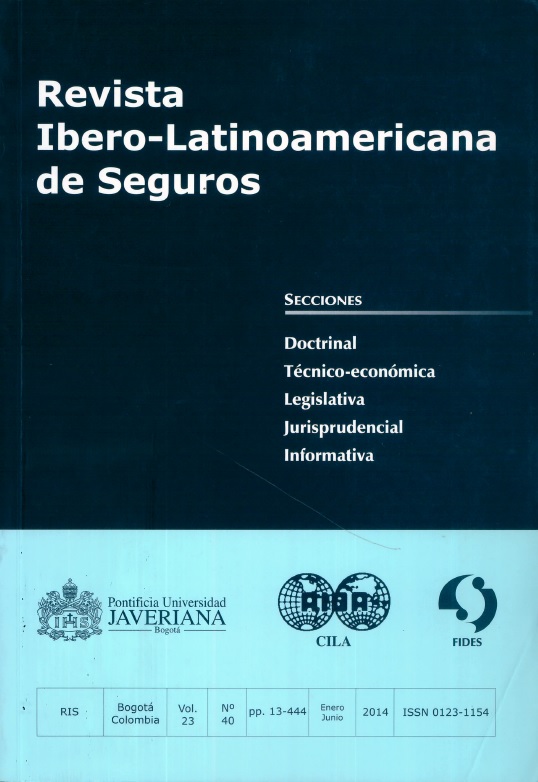Abstract
En los años recientes, varios países latinoamericanos han realizado importantes reformas a sus legislaciones relacionadas con la disciplina privada del contrato de seguro. Particularmente Chile y Perú, procedieron a ello, en el primer caso, sustituyendo el capítulo correspondiente al contrato de seguro en su Código de Comercio de muy antigua vigencia, y en el segundo expidiendo una ley específica sobre el tema. También países como México y Panamá, dentro del marco de sus normas de derecho público destinadas a regular la actividad financiera y de seguros, han expedido leyes nuevas relacionadas con la vigilancia y el control de la actividad aseguradora, que necesariamente se proyectan en mayor o menor medida sobre las relaciones particulares que surgen entre asegurados y aseguradores. El conocimiento de esas nuevas legislaciones, es un elemento insustituible para la reforma que tarde o temprano deberá operarse sobre la nuestra que data ya de más de cuarenta años. Temas como la reticencia o inexactitud en la declaración del estado del riesgo, la agravación del riesgo, la imperatividad de las normas regulatorias del contrato, la identificación de las partes, la regulación de la oferta y de la etapa precontractual en el contrato de seguro y muchas otras, son objeto de análisis y comentario en este artículo.
This journal is registered under a Creative Commons Attribution 4.0 International Public License. Thus, this work may be reproduced, distributed, and publicly shared in digital format, as long as the names of the authors and Pontificia Universidad Javeriana are acknowledged. Others are allowed to quote, adapt, transform, auto-archive, republish, and create based on this material, for any purpose (even commercial ones), provided the authorship is duly acknowledged, a link to the original work is provided, and it is specified if changes have been made. Pontificia Universidad Javeriana does not hold the rights of published works and the authors are solely responsible for the contents of their works; they keep the moral, intellectual, privacy, and publicity rights.
Approving the intervention of the work (review, copy-editing, translation, layout) and the following outreach, are granted through an use license and not through an assignment of rights. This means the journal and Pontificia Universidad Javeriana cannot be held responsible for any ethical malpractice by the authors. As a consequence of the protection granted by the use license, the journal is not required to publish recantations or modify information already published, unless the errata stems from the editorial management process. Publishing contents in this journal does not generate royalties for contributors.


